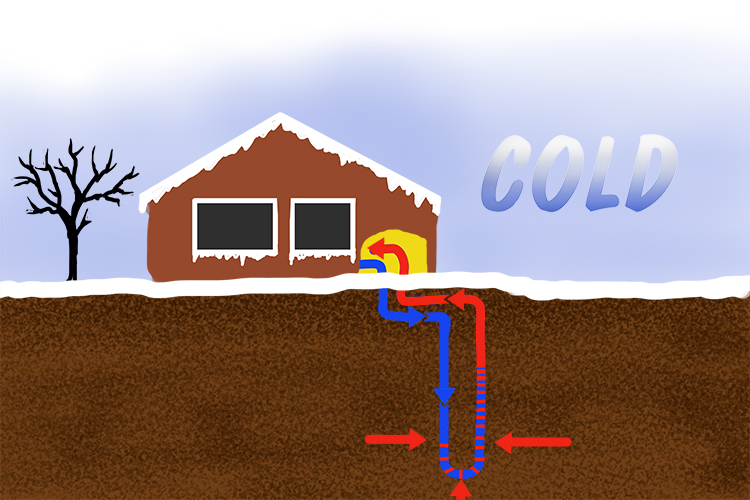Geothermal energy – Energy generated by heat stored deep in the earth
In order to learn the term geothermal we need to break down the word and remember its parts:
Geo = earth
Thermal = heat
The way to remember thermal is heat:

My Thermos flask always has a hot drink in it.
Thermal = heat
The way to remember that Geo is earth:

Gee! we owe (geo) everything to the earth.
Geo = earth
So
Geothermal = Earth Heat
or heat from the earth
Geothermal is heat from the earth that can be used to heat things like a house:

Pipes buried in the earth with water circulating through them can be used to heat a house.
If you dug a deep hole in the ground, you would notice the temperature increasing as you go lower and lower.
This is geothermal energy – the heat stored in the earth which originates from the formation of the planet and from the radioactive decay of materials.
The core of the earth is molten rock, with a temperature of about 5,200° Celsius (9,392° Fahrenheit). The temperature reduces greatly towards the earth's surface, but even the lower heat in the crust (see Mammoth Memory, The Structure of the Earth) is sufficient to provide heat for a variety of purposes, including the heating of homes.
Geothermal energy is one of the ways in which people's dependency on fossil fuels (oil, coal and gas) is being broken, providing sustainable energy – that is, energy with no significant consequences for the environment either now or in the future.
Geothermal power plants take heat from deep inside the Earth to generate steam to make electricity, while geothermal heat pumps tap into heat close to the Earth's surface to heat water and buildings.




